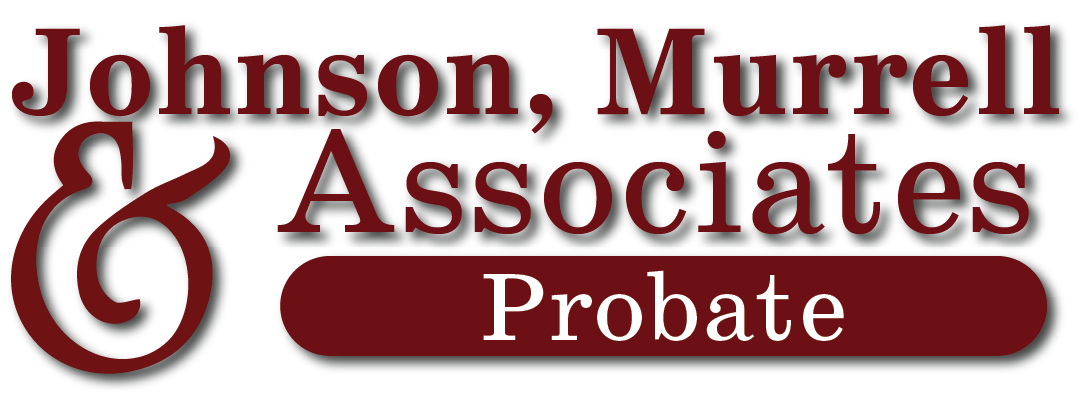Losing a loved one is one of the hardest experiences in a person’s life. The executor of the estate faces the additional stress of finalizing the deceased’s wishes once they have passed. Considering the added emotional toll, many people ask when—or if—the probate process is actually necessary. Here’s what you should know.
When Is Probate Required?
Probate can be required in a number of situations. These can include:
- When assets are owned solely in the deceased’s name
- When assets are owned as a tenant in common
- When there are predeceased beneficiaries or no designated beneficiaries
- When there is no valid last will and testament
- When a valid will requires the distribution of or retitling of assets

Assets Owned Solely in the Deceased’s Name
If a deceased person owned property in their name only, it means there were no joint owners or a payable-on-death designation. In situations like these, probate is required to remove the deceased’s name from the property and replace it with the beneficiary’s or heir’s name.
An exception to this rule is motor vehicles. In Tennessee, the vehicle can be transferred to the heir of the deceased without having to open a formal probate estate.
One example would be if John dies while owning a house titled only in his name. In this case, the property cannot be legally transferred or sold without going through probate.
The same applies to bank accounts, vehicles, or investments held solely in John’s name. Without probate, there is no legal authority to access or distribute these assets, even if a will exists.
The probate process allows the court to appoint an executor or administrator of the estate. They can then gather the assets, pay debts, and distribute the remaining property to the rightful heirs or beneficiaries as specified in the will or by state law.
Assets Owned as a Tenancy in Common
Tenancy in common (TIC) refers to estate assets with shared ownership where each person owns a share of the property. Beneficiaries must file in probate court to transfer the asset out of the deceased’s name and into their own. In these situations, probate can only be avoided if the asset was retitled in the name of the deceased’s Revocable Living Trust before they passed.
For example, consider David and Mary. They own a house as tenants in common with a 50/50 split. If David passes away, his 50% share doesn’t automatically transfer to Mary. Instead, David’s share becomes part of his estate and must go through probate.
During this process, the court will validate David’s will (if he had one) and oversee the transfer of his 50% ownership to his designated beneficiary. This ensures that his wishes are respected and that his share is properly distributed, whether to Mary, his children, or another beneficiary he specified.
Predeceased Beneficiaries or No Designated Beneficiaries

Probate becomes crucial in maintaining order and legality in these complex scenarios. When beneficiaries die before the deceased, their intended inheritance becomes part of the estate, requiring court intervention to decide on new recipients. Similarly, without designated beneficiaries, the court must step in to determine rightful heirs according to state laws.
This process ensures fair distribution and prevents potential disputes. It also provides legal protection for the executor in carrying out the estate’s administration.
Consider this example. Alex has a bank account with Jane as the payable-on-death beneficiary. Unfortunately, Jane passes away before Alex and he never removes her name as the account beneficiary. In this case, the asset will require probate when Alex dies.
The court must intervene to determine how to distribute the funds, as the intended beneficiary is no longer alive. This ensures that the assets are properly allocated according to state laws or any existing will, preventing potential disputes and providing a legal framework for the distribution of the deceased’s estate.
No Valid Last Will and Testament
If someone dies without a valid will, the court must intervene to determine asset distribution according to state intestacy laws. This process ensures fair allocation and prevents potential disputes among heirs.
The keyword is “valid.” Even if a will exists, it may be deemed invalid due to common mistakes when writing a will, such as improper witnessing or unclear language. These errors can complicate the probate process, making court oversight necessary to interpret the deceased’s intentions and legally distribute the estate.
Consider a scenario where Michael dies without a valid will. He leaves behind:
- A house
- Savings accounts
- Personal belongings
Without a will specifying his wishes, the court must step in to oversee the distribution of his estate. The probate process will appoint an administrator, typically a close relative, to manage the estate.
This administrator will:
- Identify heirs
- Settle any debts
- Distribute assets according to state intestacy laws
Probate ensures that Michael’s estate is handled fairly and legally, preventing potential disputes among family members and providing a clear path for asset distribution.
The Deceased Had a Valid Last Will and Testament
Even with a valid last will and testament, probate may still be required, particularly when the deceased owned real estate or financial assets without a named beneficiary. The probate process becomes necessary to officially transfer ownership to the designated heirs.
This legal procedure validates the will, appoints an executor, and provides a framework for settling debts and distributing assets. It ensures that the deceased’s wishes are carried out correctly, resolves any potential disputes, and provides a clear legal record of asset transfers, especially for properties that require formal title changes.
Consider Sarah, who dies leaving a will that specifies her house should go to her daughter, Emma. Despite the clear instructions in the will, the house is solely in Sarah’s name. Probate is required to officially transfer ownership of the property to Emma.
The probate court will validate the will, appoint an executor (usually named in the will), and oversee the process of settling any debts and transferring assets. This ensures that Sarah’s wishes are legally carried out, protects Emma’s rights as the beneficiary, and provides a clear legal record of the property transfer, which is crucial for future transactions involving the house.
What Are the Stages of Probate in Tennessee?
You know the answer to the question “When is probate required?”, but what does the process actually entail? The probate process in Tennessee follows a structured sequence of steps.
Initially, the executor submits the original signed will and death certificate to the probate clerk’s office in the deceased’s county of residence, along with a petition. Upon approval, they receive letters of testamentary, granting them authority over the estate’s assets.
In cases without a will, a family member may request an appointment as administrator and receive letters of administration.
The representative then obtains an IRS taxpayer ID number and establishes an estate checking account, transferring funds from the deceased’s accounts to cover estate expenses. The will’s validity is confirmed in court, after which the representative notifies creditors, and the probate clerk publishes a death notice in the local newspaper.
Outstanding debts are settled using estate funds. Finally, the representative distributes the remaining assets to the beneficiaries as specified in the will or by state law.
Other considerations
In addition to the main probate steps, the representative has several other important responsibilities. They must compile an inventory of the decedent’s assets subject to probate, although this requirement can be waived if specified in the will or if all beneficiaries agree it’s unnecessary.
The representative is also tasked with notifying all potential beneficiaries, whether they’re named in the will or stand to inherit under state law. Another essential step in Tennessee is filing a Request for Release with TennCare. This action aims to prevent the estate from being liable for reimbursements related to the decedent’s nursing home or home care expenses, potentially preserving more of the estate for the beneficiaries.
It may be necessary to file a probate case in another state in some cases (ancillary probate). This may happen when the decedent owned real estate in another state. Filing ancillary probate will allow the representative to transfer the property from the decedent to the beneficiaries.
Is There a Simplified Version of Probate?
The state of Tennessee does provide an alternative to the traditional probate process known as the small estate affidavit. Small estates valued at $50,000 and no real property require the representative to provide:
- An affidavit outlining the estate’s debts and assets
- Death certificate
- Contact information of the beneficiaries
Applying for a small estate has evolved due to the Tennessee Code § 30-4-101. The requirements for applying vary depending on which county the deceased lived in, so be sure to check the specific requirements for that county.
The court will decide if it will allow the simplified probate within 45 days once the documents have been submitted. Once approved, the assets can be directly transferred to the beneficiaries.

Tennessee requires probate in a variety of cases. Common reasons for probate include assets owned by the deceased solely in their name and in cases of predeceased beneficiaries or no designated beneficiaries. Probate may also be required if there is no will and testament or, in some cases, even if a valid will and testament is provided.
At Johnson, Murrell, & Associates, we understand that handling a loved one’s estate and bills after their passing is an emotional, stressful experience. Our job is to make your life easier, which means guiding you through the process so you understand what’s to come. To schedule a consultation, call us at 865-453-1091 or schedule an appointment.



